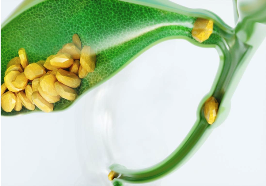Gall stones –Frequently asked questions and misconceptions
Gallstone formation occurs secondary to obesity, sedentary lifestyle, fattyfood consumption and constipation. People form some parts of india such as cowbelt (UP Bihr and West Bengal )area have an especially high incidence of stones. Mutiple pregnancies can predispose to gallstones as well.
What problems do gallstone cause?
Gallstones cause sudden onset severe pain in the upper abdomen or right half of abdomen which starts after food intake or in the night /early morning hours. Pain radiates to right shoulder or back, it is moderate to severe and stops within ½ hr to 6 hrs. If pain lasts more than 24 hrs complications of gallstones such as gallbladder infection (acute cholecystitis) pancreatitis/ bile duct-liver infection (cholangitis) / gangrene or perforation are to be suspected.
Do all gallstones need treatment?What size stones are to be treated?
Unlike in kidney stonesthe treatment of gallstones is not decided by the size and no. of stones. Only the presence of stones and associated symptoms decide treatment. If a patient has symptoms even a singlestone needsremoval irrespective of size .Likewise, if patient has no symptoms and gallstones are detected during general health checkup patient can simply followed up even if he has multiple stones.
Can we just remove the stones and leave the gallbladder alone?
Unlike in kidney stones where the kidneys are healthy. In patients with gallstones the gallbladder is diseased. Treatment was attempted in the early 20th century to dissolve / remove gallstones and leave the gallbladder intact. All such treatments the stones recurred within 3 to 6 months now we understand that gallbladder is the problem more than the stones and standard treatment of gallstones the world over is cholecystectomy (removal of complete gallbladder with stones)
What are digestive / health problems caused by gallbladder removal?
The gallbladder does produce any digestive juices. Its primary fucnction is bile storage in between meals. After cholecystectomy the canal system of the liver (intrahepatic biliary radicles) and common bile duct enlarge in size to accommodate and store bile. So, there is no digestive problems or need to change food habits after gall stone surgery.This is well documented as gallbladder surgery is one of the commonest surgeries done worldwide and there is a huge amount of scientific data to support this.
Can I leave my gallstones untreated? Can I try Native medicine (Unani/Homeo?Ayurveda)
There is no scientific data to support that allopathic or non-allopathic medicines cure gallstones. If one is asymptomatic we may follow up and operate once there is pain. Once you are symptomatic you are at 4-8 % per year at risk of serious complications such as acute cholecystitis/ Pancreatitis/ Jaundice/ cholangitis /gangrene. Patients with gallstones are at risk for these life-threatening complications over the next 10 years. Therefore, cholecystectomy is mandatory in patients with symptoms.
Why are some people unhappy about gallstone surgery?
Gallstones only cause severe abdominal pain and the complications listed above. Symptoms such as abdominal tightness, bloating, indigestion, heartburn, constipation and increased frequency of stools are very common in the general population and are not related to gallstones. Mostly when the patients / treating doctors try to correlate these symptoms with gallstones it leads to unhappiness as these symptoms may not get relieved by a cholecystectomy.
Twitter | facebook | linkedin | Pinterest
